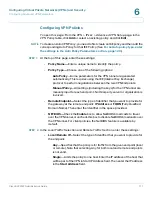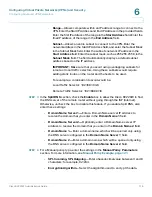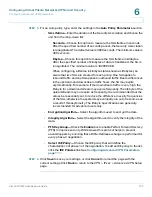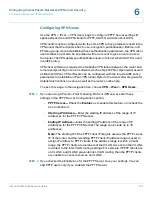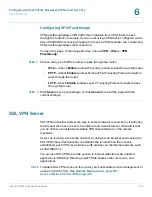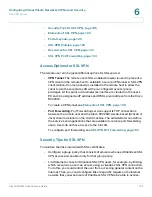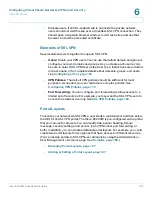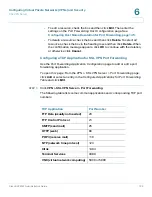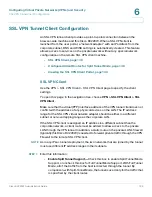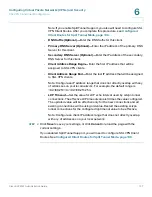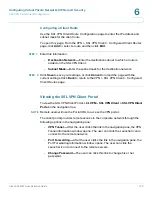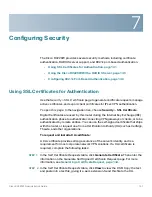
Configuring Virtual Private Networks (VPNs) and Security
SSL VPN Server
Cisco RV220W Administration Guide
129
6
SSL VPN Policies
SSL VPN Policies give configured SSL users access to services and network
resources. A policy applies to a specific network resource, IP address, or IP
address range on the LAN, or to other SSL VPN services that are supported by the
Cisco RV220W.
•
About SSL VPN Policies, page 129
•
Managing SSL VPN Policies, page 129
•
Configuring an SSL VPN Policy, page 130
About SSL VPN Policies
By default, a global PERMIT policy (not displayed) is preconfigured over all
addresses and over all services and ports.
You can create user, group, and global policies. Policies are applied based on the
following levels of precedence:
•
User-level policies take precedence over Group-level policies.
•
Group-level policies take precedence over Global policies.
•
When two policies are in conflict, a more specific policy takes precedence
over a general policy. For example, a policy for a specific IP address takes
precedence over a policy for a range of addresses that includes this IP
address.
A policy can be offered to the VPN Tunnel, Port Forwarding, or both.
After you define a policy, it goes into effect immediately.
Managing SSL VPN Policies
Use the
VPN > SSL VPN Server > SSL VPN Policies
page to view, add, edit, or
delete SSL VPN policies.
To open this page:
In the navigation tree, choose
VPN
> SSL VPN Server > SSL
VPN Policies
.
The
SSL VPN Policies Table
displays all existing SSL VPN policies. You can
create queries to find particular policies.



